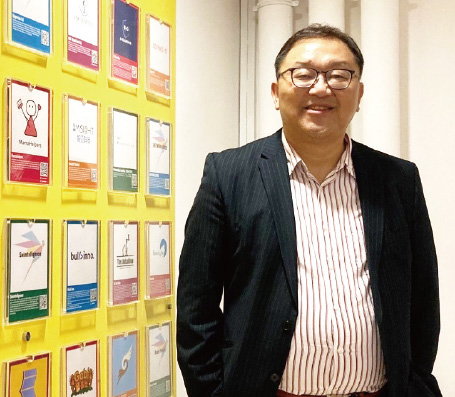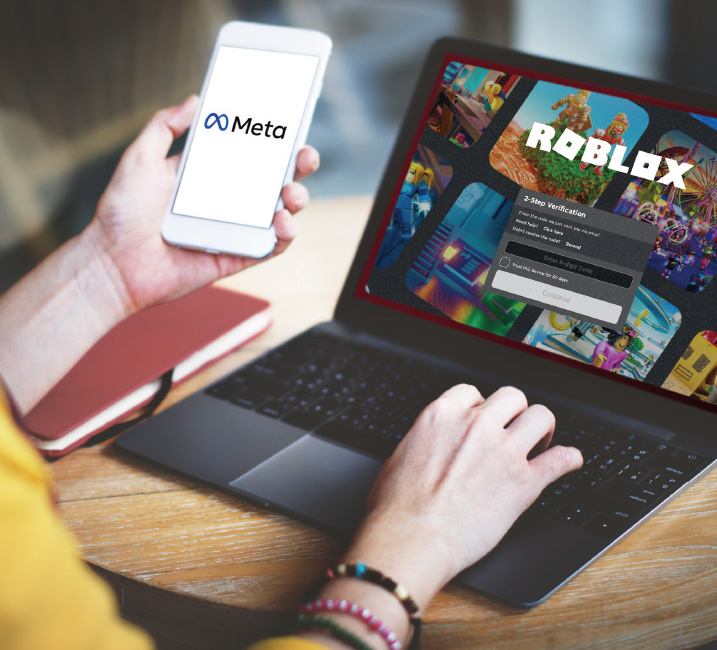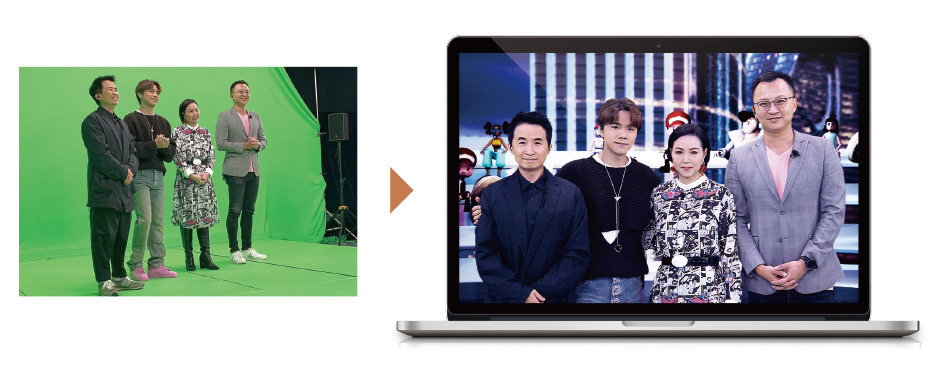Of the world’s hottest digital topics of the past year, the metaverse is sure to be on the list, in addition to NFTs. Is the metaverse a temporary trend, or is it a new form of the future world? And how should businesses hop onto this bandwagon while global tech giants are scrambling to tap into the underlying opportunities?
Wong Kam-fai: Understand First Before Investing as the New Fad Becomes a General Trend

 The term metaverse first appeared in the well-known American novelist Neal Stephenson’s 1992 science fiction novel Snow Crash, where he coined the term to describe an online world of virtual reality in which people can transform into different characters. Wong Kam-fai, Associate Dean of the Faculty of Engineering at the Chinese University of Hong Kong (CUHK) and Executive President of the Hong Kong & Guangzhou Innovation and Technology Association, said: “But what really made the concept of the metaverse become a hot topic was last year’s listing of online gaming company Roblox and the announcement of Facebook’s renaming to Meta.”
The term metaverse first appeared in the well-known American novelist Neal Stephenson’s 1992 science fiction novel Snow Crash, where he coined the term to describe an online world of virtual reality in which people can transform into different characters. Wong Kam-fai, Associate Dean of the Faculty of Engineering at the Chinese University of Hong Kong (CUHK) and Executive President of the Hong Kong & Guangzhou Innovation and Technology Association, said: “But what really made the concept of the metaverse become a hot topic was last year’s listing of online gaming company Roblox and the announcement of Facebook’s renaming to Meta.”
Tech giants triggered the metaverse fervor
Wong explained that Roblox is a virtual community based on an online game platform where players can create their own virtual characters after setting up an account and then experience different games. After its listing on the New York Stock Exchange in March 2021, the company’s valuation once rose above USD45 billion, making it not only one of the largest initial public offerings in 2021, but also described as “the first metaverse stock”.
“In October of the same year, Mark Zuckerberg, Facebook CEO, announced that Facebook would change its name to Meta, with the aim of creating a metaverse platform, which further elevated the discourse on metaverse to a higher level.” Wong explained that the metaverse is a three-dimensional space that allows participants to do everything in real life within this virtual world, including creating avatars, making friends, and even creating their own tools.
“If text-only emails or forums are one-dimensional, social media such as Facebook, which includes text and images, are two-dimensional. As for the three-dimensional metaverse, it is characterized by breaking through the concept of social media, enabling everyone to participate and create in this virtual world.” Wong added that, unlike general role-playing video games, the metaverse can provide participants with greater flexibility and give them more room for creativity. “For example, in the metaverse, you can buy existing tools or create tools or objects yourself, just like in the movie Ready Player One.”
Develop more engines to meet living needs
 Although the market is still digesting the metaverse concept, with the public’s interest in the digitalization of the real world and the realization of the virtual world, various industries will likely keep a close eye on its development and gradually increase related investments.
Although the market is still digesting the metaverse concept, with the public’s interest in the digitalization of the real world and the realization of the virtual world, various industries will likely keep a close eye on its development and gradually increase related investments.
“According to a research report published by the market research firm IDC, the development of the metaverse is expected to not only accelerate the pace of updating and development of five-senses peripherals such as VR devices, gloves and headsets, as well as hardware such as computer graphics cards, but also drive other industries to develop more engines suitable for the metaverse, including game content, advertising content, or social and commercial content, to meet the needs of participants in their lives and jobs,” said Wong.
Nevertheless, since the concept and development path of the metaverse are still in the exploratory stage, Wong said that the metaverse is now widely viewed in the academia as a platform for flipping. “The technological developments and possibilities of the metaverse are certainly interesting and worth studying. However, since it involves virtual currency transactions and whether the related digital assets have real and matching value remains to be discussed, business activities in the metaverse are highly speculative in nature at the moment. Therefore, the business community should understand and observe more before deciding whether or when to participate in it.”
Businesses should not be too committed as it is still in exploratory stage
There has always been challenges and opportunities in the business world. Although the metaverse, which is still in its infancy, is full of risks, Wong recognizes that there is also room for the business community to understand and explore.
“As far as trading in the metaverse is concerned, it is a bit like trading in shares before the establishment of the Hong Kong Stock Exchange, i.e. there is a lack of proper regulation, which exposes both buyers and sellers to considerable risks.” Therefore, Wong believes that, in line with market development, the Government or relevant authorities can consider setting up a digital asset exchange that plays a role like that of the Hong Kong Stock Exchange to safeguard the fairness for both buyers and sellers in the metaverse while not impeding creative development. “Due to its sound legal system as an international financial center, and as it is an international city, Hong Kong is well positioned to develop such a digital asset exchange.”
In addition, to cope with cybersecurity risks, Wong reminded the business community and the public to pay attention to cybersecurity issues such as privacy and identity when participating in the development of the metaverse. “In any case, when participating in the development of the metaverse, you must first understand its risks, and at the same time, don’t go all-in and invest all your money in order to avoid losing more than expected.”
Eric Yeung: Hong Kong I&T Rides on Conducive Environment to Explore Metaverse Opportunities

The metaverse maybe intangible, but the super-rich and MNCs cannot wait to plant their flags in its virtual land. The solid foundation laid out by Hong Kong’s recent innovation and technology (I&T) development efforts is expected to open doors for tapping into the metaverse. Certain members of the I&T sector even envisage seminal impact from the metaverse, which will be comparable to that of the internet at the turn of the millennium and bring about golden opportunities to drive future economic growth.
The metaverse is undoubtedly one of the latest hot topics in the I&T sector. The South Korean government, for example, announced a pan-government strategy on metaverse. The plan involves building a metaverse academy backed by an earmarked funding of 5.5 billion won. According to Eric Yeung, CEO and Co-founder of Skyzer VC Group, the concept and development trajectory of the metaverse resemble that of the internet in 2000. Back then, people were skeptical about the internet and how it could affect our everyday life or change that way most people access work, entertainment and consumption. The metaverse will generate a similar effect.
Concept realization driven by diverse technology
 Yeung explained that the internet has enabled users to employ their auditory and visual senses to connect with the world of information. The metaverse will offer a more enriching and immersive experience that involves additional sensory dimensions such as taste and touch. A “parallel world” that is wider than the cyberspace will be created. He said, “The metaverse is not severed from reality. Instead, a new format is adopted to present the real world. The concept was not actualized earlier owing to past technological limitations. The emergence of blockchain technology and NFT in recent years will team up with the maturing AR and VR technologies to establish a solid technological foundation for entrance into the metaverse.”
Yeung explained that the internet has enabled users to employ their auditory and visual senses to connect with the world of information. The metaverse will offer a more enriching and immersive experience that involves additional sensory dimensions such as taste and touch. A “parallel world” that is wider than the cyberspace will be created. He said, “The metaverse is not severed from reality. Instead, a new format is adopted to present the real world. The concept was not actualized earlier owing to past technological limitations. The emergence of blockchain technology and NFT in recent years will team up with the maturing AR and VR technologies to establish a solid technological foundation for entrance into the metaverse.”
“The metaverse is not only huge for the I&T industry. In the foreseeable future, it is going to change the way that people live. Our quality of living will be improved because of it.” Yeung explained this vision by an example. At present, we can run a long list of errands, such as shopping, ordering takeaways, banking and account maintenance, etc. via online platforms. The metaverse is expected to take all these to a new level with the introduction of new technologies. In the future, people may only need to put on a VR headset to experience a highly realistic virtual journey. They may enter a virtual store and do much more than browsing. Perhaps they can “touch” a product to learn more about its materials and textures. The advent of the metaverse will give rise to a host of new jobs, including services dedicated to that dimension. The business landscape will become more diverse.
Corporate giants “planting flags” and longing for government facilitation
In the light of all these advances, Yeung foresees the metaverse will turn into a big trend and cause radical changes to the social ecology and economic activities. Corporate giants such as HSBC and MTR are already “planting flags” in the metaverse by purchasing virtual land lots – an act that is similar to shopping internet domains. “In 2000, many traditional corporations thought there was no need to build an internet presence and business could be conducted as usual. Now, people will be stunned if you don’t have one searchable web page, no matter if you are a sizeable or a small to medium enterprise.”
Speaking of the rise of the metaverse, Yeung said that some members of the local I&T sector are actively developing or applying the relevant technologies, hoping to secure their share in this new market with unlimited potentials. Many are seeing themselves as Tencent or Baidu 20 years ago. “I have been vetting proposals for many start-up platforms. Over the past six months, I have come across many metaverse-related projects. That means many start-uppers are aware of the opportunities in this area.”
Yeung also believes that the government could play a facilitator’s role in the process, and work to enhance other sectors’ awareness about the development of the metaverse. On one hand, more I&T companies can be encouraged to join the relevant research and development, and on the other, more students can be attracted to get enrolled in relevant programs, so as to groom more potential I&T talents and enhance our competitiveness.
Helping traditional brands transform to gain first-mover advantage
One of Yeung’s companies is developing games with built-in NFT elements. It is also helping traditional brands to virtualize their products for the metaverse. He shared that his company has announced earlier this month on a collaboration with the Emperor Entertainment Group. NFTs related to Hins Cheung – a highly popular Hong Kong artiste – will be issued, alongside a virtual game and a virtual gallery. All these will help him tap into the metaverse and interact with his fans in a whole new way.
“The metaverse happens in the digital or electronic dimension. Unlike conventional technology development, it will maintain a very strong connection with integrating with the real world instead of completely setting it aside or being completely virtual. Under such a condition, the business environment, the legal system and the financing ecosystem of a certain region will have a huge impact for companies growing in the metaverse.” Yeung stressed that this is why he has chosen Hong Kong as the development base for his metaverse presence. In fact, Hong Kong possesses a mature business and financing environment and there are a vast number of investors who are willing to invest on NFTs and other I&T initiatives. There is also a sound legal system and strong respect for intellectual property rights. People are readily accepting new technologies, and there is strong collaboration with I&T in the mainland. All these aspects are well balanced in Hong Kong and they provide favorable conduits to support the development of the metaverse.




